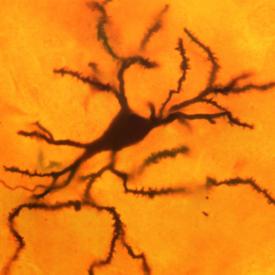PROGRAM GOALS AND CURRICULUM
The MS in neuroscience is ideal for those pursuing a career in research, health care or education. It also provides a solid foundation for those interested in pursuing a doctoral degree. To earn this neuroscience degree, you must complete 33 credits with a grade of B or better. Most coursework will be completed in the first year of the program, with the second year primarily dedicated to research. Students will complete an independent research project under the guidance of a research mentor and an advisory committee.
At the conclusion of the program, students will be able to:
- Express an understanding of concepts and theories in the field of neuroscience.
- Demonstrate understanding of brain anatomy and function as related to cognition and behavior.
- Communicate the relationship between the brain and mind. This multidisciplinary understanding will include an understanding of the brain, what mind is (how we know), and how the mind and brain interface to regulate cognition and behavior.
- Read, understand, and evaluate peer reviewed scientific research articles in the field of neuroscience.
- Demonstrate technical competence in fundamental research techniques used in the field of neuroscience.
- Demonstrate a foundational understanding of bioethical issues related to the field of neuroscience, for example the ethics of neuroimaging and brain privacy, neurotechnology safety, cognitive enhancement and potential avenues for pharmacological manipulation.
- Apply their understanding of neuroscience to critically assess the local and global current events related to neuroscience.
- Communicate an awareness of career and post-graduate opportunities prior to graduation.
View all courses for this program
Faculty in the MS in neuroscience program are experts in a variety of fields and have published a wide breadth of research. They are more than teachers, acting as advisors and mentors throughout your graduate school journey to help you reach your academic and personal goals.



